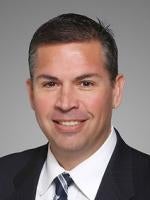Pulte Home Corporation v. American Safety Indemnity Company, — Cal.Rptr.3d — , 2017 WL 3725045 (Aug. 30, 2017); California Court of Appeal, Fourth District, Division 1, Case No. D070478.
In two construction defect lawsuits, homeowners sued the general contractor and developer, Pulte Home Corporation, for alleged foundation, electrical and waterproofing defects.
Pulte required that its subcontractors purchase general liability insurance with completed operations coverage naming Pulte as an additional insured. American Safety Indemnity Company had issued such liability insurance policies to several subcontractors implicated in the defect claims. Those policies included “products – completed operations” coverage for property damage occurring away from the named insured’s premises, “arising out of ‘your work.’” “Your work” included “work or operations performed by you or on your behalf” and warranties as to fitness and quality.
By way of an additional insured endorsement (“AIE”), the policies named Pulte as an additional insured “but only with respect to liability arising out of ‘your work’ and only as respects ongoing operations performed by the Named Insured for the Additional Insured on or after” the endorsement’s effective date. Relying primarily on the italicized language of the AIE, American Safety denied Pulte’s request for a defense to the lawsuits. According to American Safety, its endorsement properly removed completed operations coverage for additional insureds, although such coverage remained for named insureds.
Pulte sued American Safety alleging a breach of the duty to defend and bad faith. The trial court agreed that American Safety owed and breached a duty to defend. Among other things, it found that the AIE created ambiguities on the potential for coverage in construction defect lawsuits. It held that the AIE’s reference to “ongoing operations” had not expressly excluded completed operations coverage. Thus, it awarded Pulte its underlying defense fees and costs. The trial court also held that American Safety unreasonably interpreted the AIE to avoid defense coverage, and did so contrary to court decisions known by American Safety to have already rejected American Safety’s interpretation. Thus, it found American Safety to be in “bad faith,” and awarded Pulte its Brandt fees – that is, the attorneys’ fees it incurred to enforce the policy.
In awarding Brandt fees, the trial court considered hourly fees after Pulte and its lawyers changed the contingency fee agreement to an hourly fee agreement post-verdict. The trial court also awarded punitive damages against American Safety on a one-to-one ratio to its award of Brandt fees.
The Court of Appeal affirmed the judgment in Pulte’s favor, except that it remanded with instructions to recalculate the Brandt fee award, and consequently, the punitive damages award too.
In reviewing the threshold coverage issue as to “whether the additional insured endorsements explicitly exclude[d] coverage for the subcontractors’ completed operations,” the Court rejected American Safety’s argument that the “ongoing operations” language in the AIE applied as a limiting term excluding completed-operations coverage. According to the Court, the AIE “can reasonably be read as a grant of coverage for the insured’s completed operations, if property damage ensued from them.” And because “your work” included warranties and representations, “[l]iability arising out of such inherently involves completed work, not work in progress.”
The Court reasoned further: “[T]he subject AIEs were issued during construction, while the subcontractors were still working on different phases of the projects. Both sets of insureds could reasonably have expected that if the subcontractors had bought completed operations coverage for the work, it also applied to vicarious liability of the developer . . . . These AIEs do not clearly restrict coverage to only ongoing operations, simply by linking the ongoing operations phrase to ‘liability arising out of the work’ clause.” If American Safety intended to exclude the completed-operations coverage for additional insureds, it needed to expressly do so.
The Court of Appeal also held that substantial evidence supported the trial court’s finding of bad faith and award of punitive damages. It disagreed, however, with the lower court’s Brandt fee calculation, which impacted the punitive damages award. As a preliminary matter, the Court recognized several basic concepts, including that: (1) insureds bear the burden of demonstrating how fees for legal work attributable to both the contract and tort recoveries should be apportioned; (2) in the case of a contingency fee arrangement, the trier of fact must determine the percentage of legal fees paid to the attorney that reflects the work attributable to obtaining the contract recovery; and (3) the law allows parties to a fee agreement to modify it.
For purposes of the Brandt fee calculation, however, the trial court improperly considered the amount of hourly fees Pulte had incurred based on its post-verdict change in the fee agreement. “Because of the extent of exposure American Safety had to any kind of liability throughout the trial, the fee arrangement in effect during trial should have controlled over the recent changes to it.” Thus, the Court remanded the matter “to the trial court for recalculation of the proper amount on the original contingency basis.”
The Court found “no fault” with the trial court’s one-to-one ratio of the Brandt fee award to the punitive damages award, but instructed the trial court to recalculate the amount of punitive damages following its recalculation of Brandt fees.
On September 14, 2017, American Safety filed a Petition for Rehearing.



 />i
/>i

